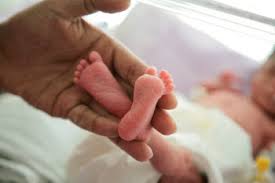Panaji, May 11: Amid the COVID-19 outbreak, most of the people are more concerned about the health of their near and dear ones than their own well-being, says a study conducted by a leading business school in Goa.
People are now more conscious about any bodily changes, and even mild cold, cough and sneezing, it says.
The study, on public's reaction towards COVID-19 outbreak by gauging their psychological response in terms of anxiety and their coping behaviour, was conducted by the Goa Institute of Management's Dr Divya Singhal and Prof Padhmanabhan Vijayaraghavan.
It took into account inputs from 231 respondents residing in various parts of the country.
"Nearly 82.25 per cent of the respondents were more worried about the health of their loved ones than their own well-being," Singhal said.
"Majority of the respondents have become conscious of any bodily changes, sensations, a mild cold, cough, sneezing and experience concern, and attribute those changes to the symptoms of COVID-19," she said.
Besides, more than 50 per cent of the respondents said their social media usage has gone up as well as their time spent on watching movies and shows through online medium, the official said.
The respondents agreed that their technology usage to connect with friends and relatives has gone up, she said.
The study also indicated that a large group of respondents found it "depressing" to read forwarded messages on the deadly disease.
"An overwhelming majority of the respondentsagreed that they discourage unverified forwarded messages about COVID-19 on social media," says the study.
It also found that 41 per centof the respondents were not doing any physical activity, like yoga, during the lockown period, while another 19 per cent were not sure about engaging themselves in physical activities.
Besides, 57 per cent of the respondents were not engaged in any mind-calming practices like meditation, and 18 per cent were not sure about taking up meditative practices, the study said.
The respondents included 145 men and 86 women, aged 18 and above, with nearly 60 per cent of them residing in non- metro cities and rest from metros.
About 47.62 per cent of the respondents were employed in private or government sectors, and the remaining included students, retired persons and homemakers.
 The results stated that women who ate protein rich foods including lean meats, fish, chicken, fruit, whole grains and vegetables, had considerably lower risk of preterm birth than compared to women who mainly consumed discretionary foods, such as takeaway, potato chips, or foods high in saturated fat and sugar.
The results stated that women who ate protein rich foods including lean meats, fish, chicken, fruit, whole grains and vegetables, had considerably lower risk of preterm birth than compared to women who mainly consumed discretionary foods, such as takeaway, potato chips, or foods high in saturated fat and sugar.




Comments
Add new comment